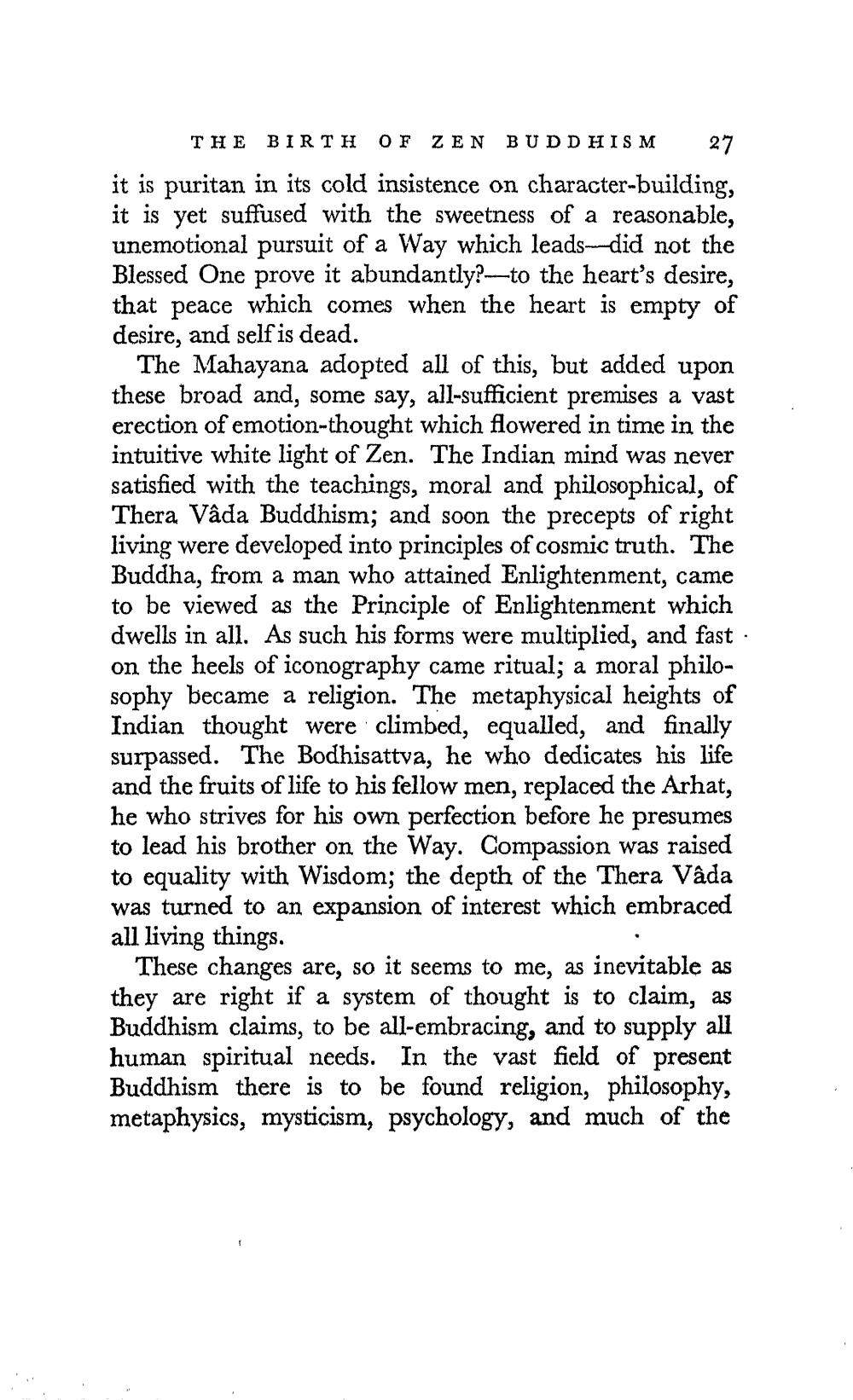________________
THE BIRTH OF ZEN BUDDHISM 27 it is puritan in its cold insistence on character-building, it is yet suffused with the sweetness of a reasonable, unemotional pursuit of a Way which leads-did not the Blessed One prove it abundantly?-to the heart's desire, that peace which comes when the heart is empty of desire, and self is dead.
The Mahayana adopted all of this, but added upon these broad and, some say, all-sufficient premises a vast erection of emotion-thought which flowered in time in the intuitive white light of Zen. The Indian mind was never satisfied with the teachings, moral and philosophical, of Thera Vâda Buddhism; and soon the precepts of right living were developed into principles of cosmic truth. The Buddha, from a man who attained Enlightenment, came to be viewed as the Principle of Enlightenment which dwells in all. As such his forms were multiplied, and fast on the heels of iconography came ritual; a moral philosophy became a religion. The metaphysical heights of Indian thought were climbed, equalled, and finally surpassed. The Bodhisattva, he who dedicates his life and the fruits of life to his fellow men, replaced the Arhat, he who strives for his own perfection before he presumes to lead his brother on the Way. Compassion was raised to equality with Wisdom; the depth of the Thera Vâda was turned to an expansion of interest which embraced all living things.
These changes are, so it seems to me, as inevitable as they are right if a system of thought is to claim, as Buddhism claims, to be all-embracing, and to supply all human spiritual needs. In the vast field of present Buddhism there is to be found religion, philosophy, metaphysics, mysticism, psychology, and much of the




